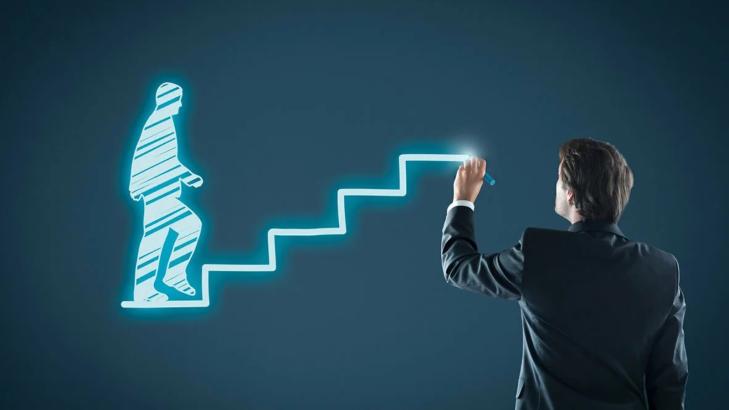How Can We Evaluate Our Lives?
There are no universal standards for measuring and evaluating our lives, which means that it is up to each individual to find their own way. Some people look at their material gains in comparison with their peers; others tend to measure their advancement in the career ladder; and there are those who evaluate themselves based on their appearance.
We hardly ever hear about successful people, in society's eyes, who evaluate their lives by their bank account size or any other conventional standards, but instead, they take into account the following three factors:
These three factors are interconnected, according to experience. Being full of energy indicates that you are in a good mood, and a good mood reflects positively on your work. When you work better, you feel satisfied with your life and are more generous, which in turn strengthens your relationships with those around you. A happy life is the result of having good relationships.
“The nature of the relationship with family and close friends is the critical factor in long-term happiness,” according to author and Harvard Business School professor Clayton M. Christensen in his book How Will You Measure Your Life?
Quality matters more than quantity in relationships, and the quantity of followers and friends on social media is fake and meaningless. Real relationships are unconditional and take time to develop and solidify.
Therefore, the majority of relationships are not real. For instance, we break up with the person we love if they gain weight or change their opinions, or we invite friends to parties just to find someone we can dance with. These conditional relationships are meaningless, as true friendship and love are deeper and stronger than that because they are based on supporting the one you love without conditions, and this is what gives our lives meaning.

Three Standards to Measure Your Progress in Life
1. Energy Measurement
Energy can be easily measured by evaluating how you physically feel, and then it is crucial to look into ways to boost energy. Start by posing the following question to yourself:
What simple energy-efficient actions can I take today?
Here are two steps that are suitable for everyone:
1.1. Exercising Daily
For instance, you can lift weights four times per week or go for a brisk 30-minute walk or run on the days you do not work out.
2.1. Eating Healthy
Some people do not follow a specific diet, so they eat meat, bread, pasta, and other foods that are harmful to their health. but it makes them happy. Also, they don't eat processed food, and they rarely consume sugar. In other words, they don't take in more calories than they burn, which is one aspect of the equation.
You must feel great and full of energy and vitality when you do these things daily, but if you stop exercising or start eating poorly, you will start to feel weak and low on energy. In conclusion, you can boost your energy and vitality through exercise and a healthy diet.
2. Work Evaluation
Consider how much can still be learned rather than factors like income, position, and other things. In other words, have you reached your maximum learning potential?
This standard is more crucial, as Christensen once said, “To find true happiness, you have to keep looking for meaningful opportunities, in which you can learn new things, succeed, and take on more and more responsibility.”
The quantity of learning and, more importantly, the persistence of never-ending learning are directly correlated with success in life and the workplace. Additionally, the advancement of your educational process has a positive impact on your income, as the more you learn, the more you earn.
Also, we must not overlook the significance of applying knowledge, as we frequently hear about geniuses who wasted their potential, so knowledge is worthless without application. As a result, using your knowledge is necessary for success.
In general, the more you know (through experiences or studies), the more you play a bigger role in your company and help your colleagues and customers more effectively, which ultimately leads to an increase in your financial income.
3. Relationship Evaluation
Your relationships will deepen as a result of how much you touch and affect other people's lives, and this completes the circle of life.
Value relationships only from your side, and avoid the mistake most of us make, which is to look at what others do for us. As the late American author Wayne Dyer says, “The way people treat you is a reflection of their morals, and how you react is a reflection of yours." So instead of observing the way people treat you, take stock of the amount of time and energy you put into your relationships.
Because it is the only thing you can control. As experiences show, devoting time to the important people in your life improves your relationships, and if it does not work, then there is no future for the relationship in the first place, and you simply have to get over it and move on with your life.
In Conclusion
The conclusion here is that we should always concentrate on the aspects of our lives that we can control, like our energy, our efforts at work, and what we do for the sake of our relationships. Therefore, reflect on your life, quickly evaluate your feelings, and then work to improve them.






Add comment